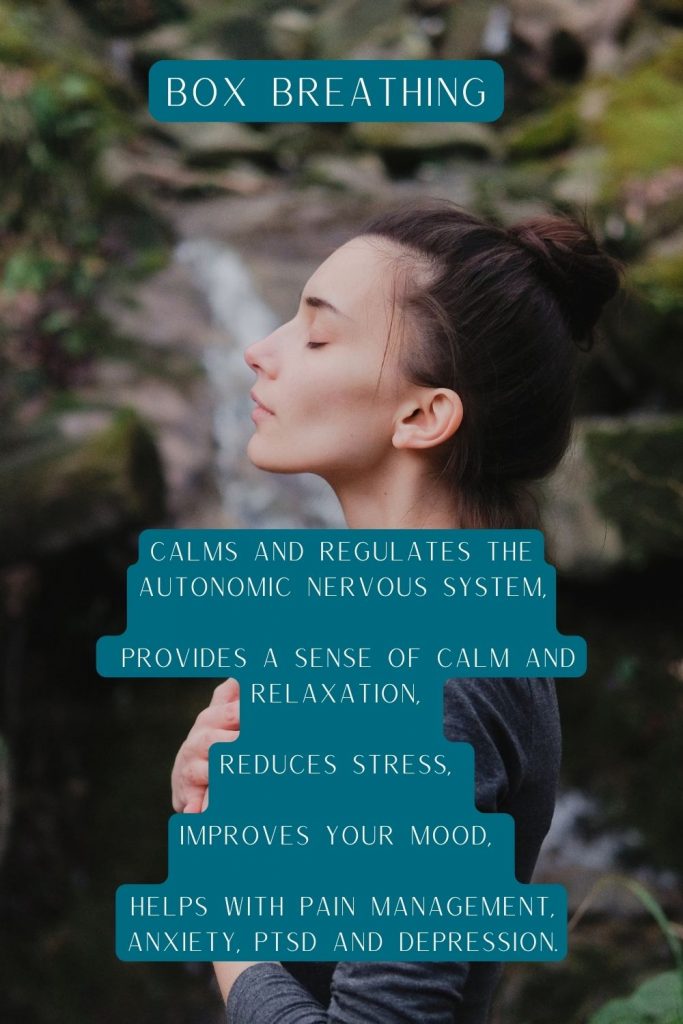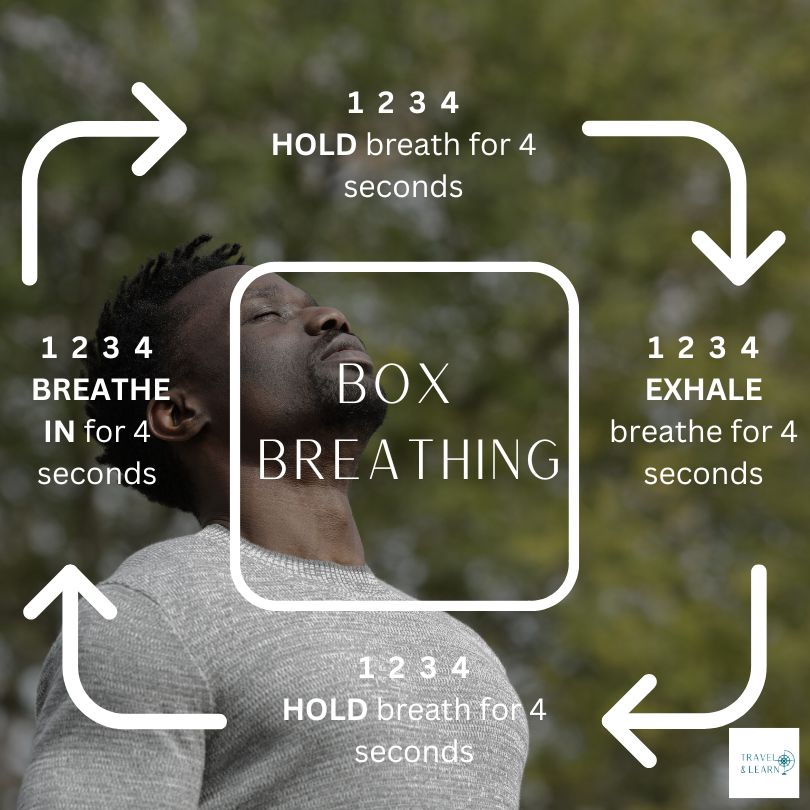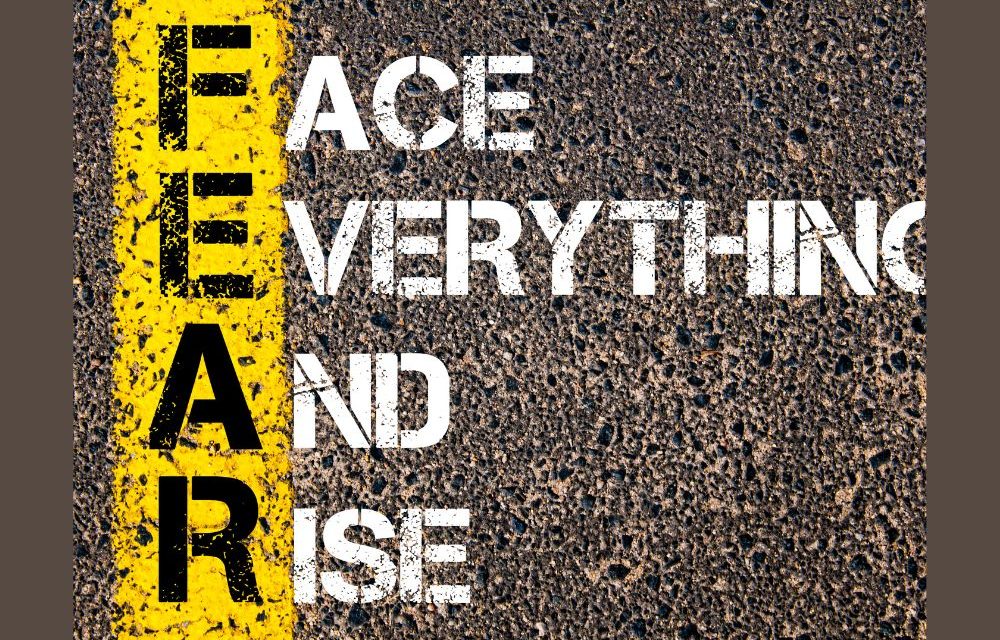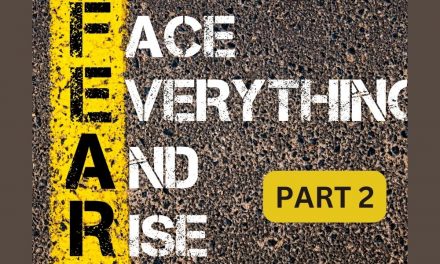That’s right. FEAR. I’m saying it out loud.
It keeps us up at night, ruining perfectly good sleep as our fears turn into worry.
It slams us against a wall just as we’re beginning to make forward progress showing up as words of negativity or doubt.
"What are you doing?"
"Why do you think that will work?"
"How do you know you'll be safe?"
It creates tension and stress in our bodies which makes for restless sleep.
It likes to think it’s won. But…we know differently.
Just to clarify, today we’re not talking about legit fear when you find yourself in a physically or emotionally dangerous situation or are facing a serious life change. No, we’re talking about those little fears that like to swarm together while they try and convince you they’re full-fledged grown-up fears when in reality they’re just annoyances, like summertime gnats or mosquitos.
Some people are naturally good at just ignoring their fears and bravely pushing through anyway.
Sometimes that’s me.
But all too often, I find myself looking for a diversion to distract me and remove the discomfort fear creates.
Ultimately, we have to just accept that it exists. It’s part of being human. We can learn about what’s happening within our brains and our bodies when fear happens. That’s incredibly helpful to know, but ultimately, it’s not what you’re likely to be thinking about at the moment you’re suddenly gripped by fear.
And we have to develop some simple skills to add to our tool chest to handle those times when fear can seem unmanageable…threatening to stop us from taking real-life steps toward our dreams.
1) Box Breathing – use at the moment

I’m going to share some of the tried and true tools that I pull out whenever I’m facing a swarm of fears. To be honest, I’ve used these same tools when facing real, legit fears (like the death of a family member, or a cancer diagnosis) and they’ve worked.
When I first heard that Navy Seals have their version, I was immediately intrigued. After a quick online search, I found out it’s also used by high-performance athletes, people working in high-stress situations (think ERs or first responders), and everyday humans like me. When I was undergoing chemotherapy, it was a lifesaver getting me through some rough days. I still use it throughout the day whenever I feel myself beginning to have a fear/stress response.
In its simple form remember 4 in (through your nose), 4 hold, 4 out (your mouth), 4 hold.

When you first start, it’s common to feel a bit light-headed. Start with one cycle as you count to 4. The key is not to rush through your counting. Start with 1 count equals 1 second. Over the next few days or weeks, slowly increase how many cycles you can do in one sitting. It’s amazing how quickly you’ll feel the benefits!
The best part is you can easily do it anywhere and no one will even notice. You’re not taking big loud breaths, just quietly breathing in through your nose and quietly out through your mouth (which can be barely open).
If you have any breathing challenges, please consult your medical practitioner before beginning.
2) Staying Hydrated – throughout the day
Busy lives, the hours slip past, and the next thing you know you’re dehydrated. There are so many online calculators for how many ounces we should be drinking every day. I’m no professional so you’ll have to figure that one out for yourself.
I also include electrolytes in my first and last glass bottles of water every day. I use ReLyte (link – https://redmond.life/pages/re-lyte), but there are many great options on the market.
3) Sleep – daily
It can become a vicious cycle. Fear keeps you awake, but sleep keeps fear at bay.
Getting enough sleep is vitally important to maintaining mental health. If you’re struggling, ask your medical provider for help. There can be many physiological reasons for sleep, including hormone imbalances, breathing issues, or taking certain supplements at the wrong time of day.
For all of you lucky nappers, more and more medical studies have been published showing the value of daily naps. I can’t seem to nap unless I’m sick or mentally exhausted, but Dave’s a napping pro!
4) Seeking Wise Counsel – as needed
Hopefully, you have at least one person who has known you long enough, or well enough, to give you perspective when you need it, make you laugh, or just hug you. Seek them out, even if asking for help isn’t something you find easy to do.
5) Faith – always
My faith is the foundation of my life. Everything in my life is built upon it. Common ways to support personal beliefs are setting aside time for prayer, meditation, journaling, or spending time with people who share similar beliefs. It’s one of the most effective tools I know for keeping fears to a minimum and in perspective.
What skills, habits, or tools do you use when fear crops up?
Lisa





